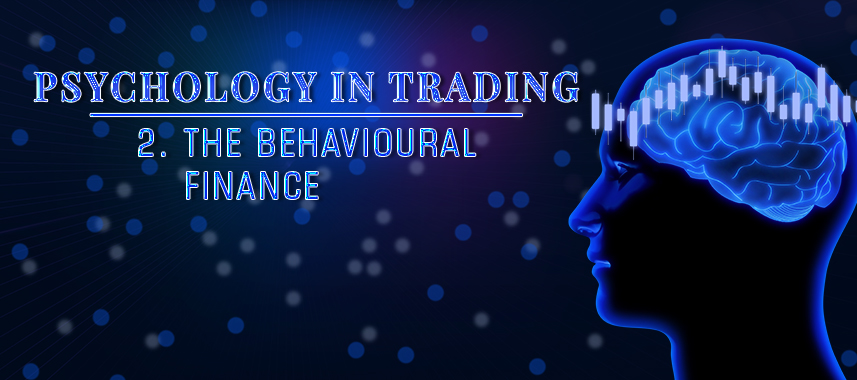
Personalities & Traders
4 January 2023
Myers-Briggs personalities conclusions
4 January 2023Many successful traders have supported the importance personality plays in trading. Jack Schwager dedicated an entire chapter to the subject in his “The Little Book Of Market Wizards,” and even went so far as to say “if you get nothing else out of reading this book than the one following principle, it will still have been a very worthwhile endeavour. Successful traders find a methodology that fits their personality.”
He thought that “traders must find a methodology that fits their own beliefs and talents. A sound methodology that is very successful for one trader can be a poor fit and a losing strategy for another trader.”
In his book, Schwager interviewed many famous traders, such as Marty Schwartz and Paul Tudor Jones, in his book, but the trader that best illustrated his point was Colm O'Shea. “Colm O’Shea, one of the global macro managers I interviewed, lucidly expressed this concept in answer to the question of whether trading skill could be taught:”
“If I try to teach you what I do, you will fail because you are not me. If you hang around me, you will observe what I do, and you may pick up some good habits. But there are a lot of things you will want to do differently. A good friend of mine, who sat next to me for several years, is now managing lots of money at another hedge fund and doing very well. But he is not the same as me. What he learned was not to become me. He became something else. He became him.”
I could list many other quotes from famous traders who have recognised the role of personality and its importance in trading. Many traders who have managed money for any length of time have come to realise this, and very often reached this conclusion the hard way, by losing money.
However, when describing this kind of concept to newer traders, the responses I receive are all along the lines of: “Everyone says that and I accept it to be true, but nobody ever tells you specifically how to do it. How do you find out exactly what your personality is and what trading styles or methods suit it?”
It is a great question, and the fact that it can take successful traders many years of trial and error to discover what really works for them, I think demonstrates how, until now, there has not been a simple answer.
I will now try to give you an answer to this question, using the MBTI test. In the previous chapter, you saw that the Myers-Briggs system divides personalities into four different areas, each divided into two types.
So, let's review the four areas again, but this time by describing different types of traders.
1) Introvert or Extrovert
An introverted trader may find it easier to develop strategies, follow their guidelines, and track performance while whilst an extroverted trader may be more aware of external influences on the markets (be careful not to assign too much weight to these).
If you have introverted tendencies, avoid dwelling too much on your strategy, and try looking at the bigger picture of a situation. External factors can sometimes give you useful “tips” (for instance, by confirming your analysis).
If you have extroverted tendencies, try looking at strategies that do not require too much focus, and beware of everything that is external to the markets, as it might lead you to make the wrong decision.
2) Intuition or Sensing
Intuition is what Jung called “perception by the unconscious mind.” Traders intuition oriented have a bigger picture of the situation and are able to fill the gaps when there is missing information. Intuition also enables us to see what is possible, rather than just what is in front of us right now.
Sensation orientation is all about using your senses to understand the world around us. Traders sensation-oriented experiment with new strategies by taking cues from the past, but without losing sight of the real facts.
3) Thinking or Feeling
Thinking involves logical processes, that include evaluating cause and effect. Traders who are “thinking focused” will tend to weigh up the pros and cons of the trade when making a decision. Thoughts and logic can help you develop great trading methods, yet it is felt that leads you to press the “buy” or “sell” button on the platform.
Feeling involves value judgements and emotions. Without feeling, you cannot make judgements about things that you value and are important to you, as it enables you to consider what risks you are prepared to take.
The feeling-focused traders tend, however, to trust their sensations too much, leaving out the operational process and analysis aspect of the trade.
4) Judgment or Perception
These traders have a preference for judgement, and are people who are looking for a resolution; they want to evaluate information and make a decision. By contrast, perception-focused traders prefer a more open-ended outcome.
There are definite benefits to being a judgement-type in trading; having a clear plan and structure, and sticking with things until their outcome, whilst perception-type traders may make more hasty trading decisions.
However, the perceptive trader can be more adaptable, and because the market is always changing, it demands that you adjust your methods as you go along, if you want to stay profitable.
Many successful traders have supported the importance personality plays in trading. Jack Schwager dedicated an entire chapter to the subject in his “The Little Book Of Market Wizards,” and even went so far
I am a macroeconomic and financial analyst with over 30 years’ experience, including two years as a fund manager. I specialise in currencies and commodities, and I am the author of several successful books on trading, macroeconomics, and financial markets.






